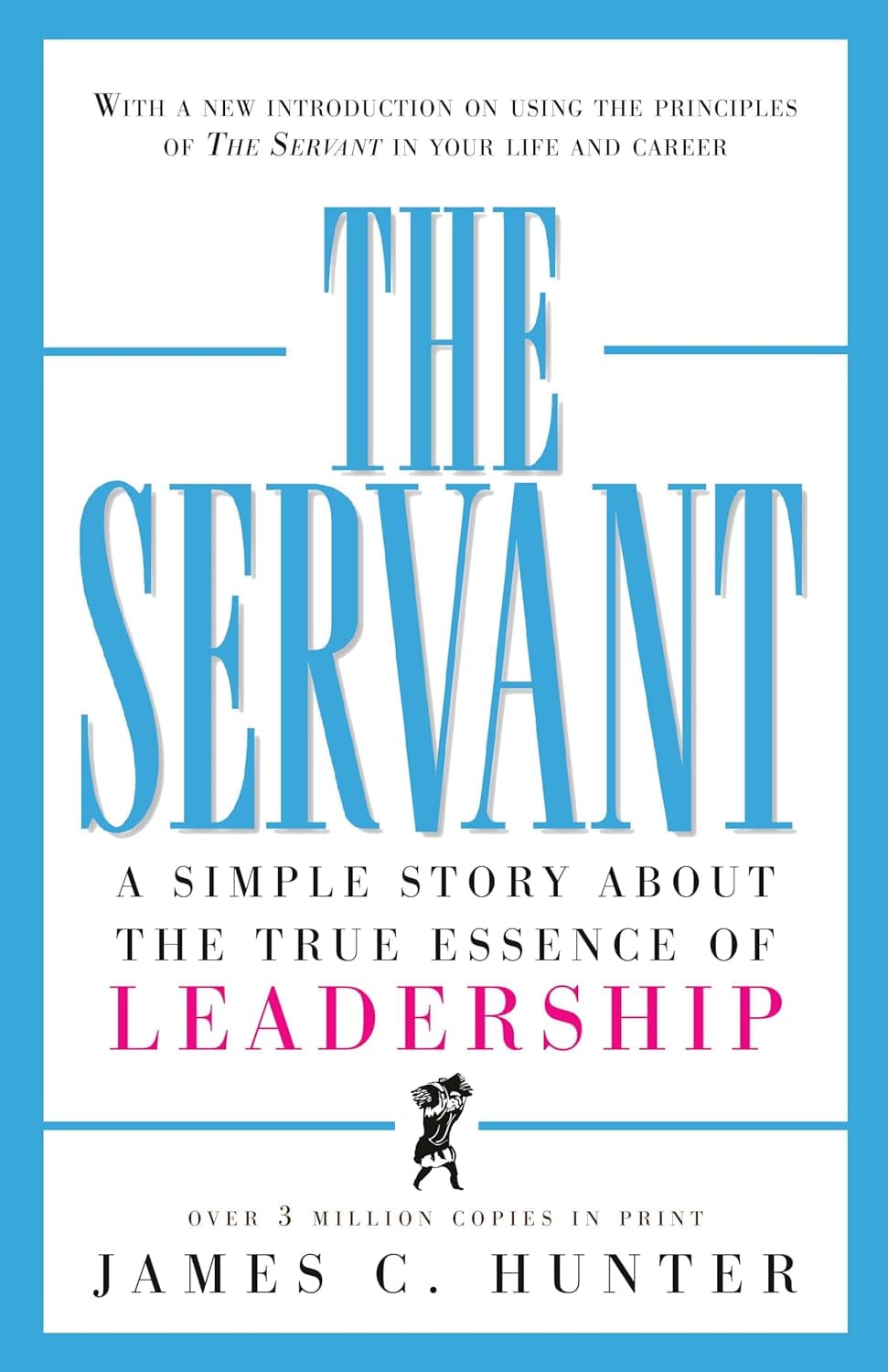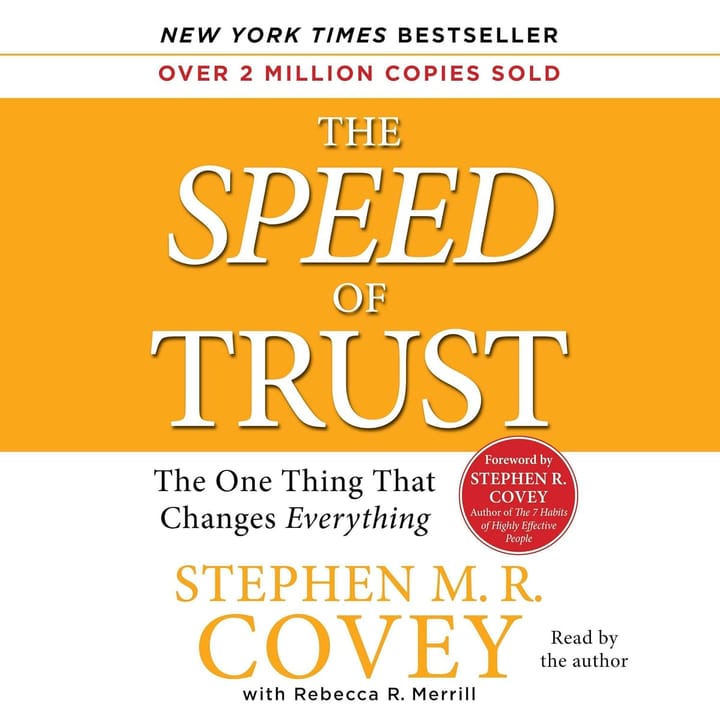Navigating Leadership: Review James C. Hunter's "The Servant"
Embark on a transformative exploration of leadership with James C. Hunter's "The Servant." Uncover insights to navigate effective leadership successfully.

Key Takeaways:
- The Servant by James C. Hunter offers a transformative perspective on leadership through the lens of servant leadership.
- The book presents a compelling narrative that intertwines the personal journey of a business executive with the timeless principles of servant leadership.
- Hunter's work serves as both a guide and a challenge for individuals seeking to achieve lasting and meaningful success in their leadership roles.
A Story of Transformation
James C. Hunter's The Servant: A Simple Story About the True Essence of Leadership is an absorbing tale that takes readers on a journey into the heart of what it means to be a true leader. The book follows the life story of John Daily, a businessman whose outwardly successful life is spiraling out of control. Despite his achievements, John finds himself failing miserably in his leadership roles as a husband, father, and coach.
The Weeklong Retreat
Against his wishes, John finds himself compelled to participate in a weeklong leadership retreat held at a secluded Benedictine monastery due to an unexpected turn of events. To John's surprise, the monk leading the seminar is none other than Leonard Hoffman, a former business executive and Wall Street legend who has traded his corporate success for a life of service. This unexpected encounter sets the stage for a profound exploration of leadership skills and personal growth.
Unfolding the Principles of Servant Leadership
The core of Hunter's narrative is the unfolding of servant leadership principles. The story is structured to gradually reveal the true foundation of effective leadership, which, according to Hunter, is not about wielding power but about serving others. The training consulting firm, Hunter Associates, echoes this philosophy, emphasizing that leadership does not demand special talents; it requires a dedication to serving others.
The Old Paradigm vs. The New Model
Hunter contrasts the old paradigm of leadership, which is based on power and control, with the new model of servant leadership. Through the character of John Daily, readers witness the timeless virtues that lead to meaningful success. The book redefines success not as a position or title but as the ability to build bonds of respect and responsibility.
The Essence of Leadership
At its core, The Servant is a story about the true essence of leadership. It is a narrative that transcends the traditional business book format, offering insights into how servant leadership can transform not only organizations but also the lives of individuals. Hunter's work is a testament to the power of love, service, and relationships as the bedrock of true leadership.
The Servant Leader
The concept of the servant leader is central to Hunter's message. A servant leader is someone who leads by example, prioritizing the needs of others and fostering an environment where everyone can grow and succeed. This book illustrates that being a servant leader does not mean being servile; it means being a leader who empowers others.
The Labor Relations Trainer
James C. Hunter, the author, brings his own experiences into the narrative. As a principal consultant and trainer primarily in labor relations and leadership training, Hunter has firsthand knowledge of the challenges leaders face. His insights are woven into the story, making the lessons of The Servant all the more credible and applicable.
The Role of Relationships in Leadership
The book The Servant by James C. Hunter emphasizes that the true essence of leadership is deeply rooted in the quality of relationships that leaders foster with their teams. A leader's ability to cultivate bonds of respect, responsibility, and genuine care is paramount. The story of John Daily, a businessman whose outwardly successful life is spiraling out of control, serves as a powerful narrative to illustrate this point. Through his interactions at the weeklong leadership retreat, John learns that leadership is less about wielding power and more about nurturing relationships.
In the realm of servant leadership, as unfolded in Hunter's tale, the leader is seen as a steward of their team's growth and well-being. The retreat, led by a monk who is also a former business executive, reveals that the foundation of effective leadership is not in the authority one commands but in the service one provides. This paradigm shift from a focus on self to a focus on others is a central theme of the book, showcasing that the true foundation of leadership is built upon relationships that are characterized by love and service.
The Integration of Personal and Professional Growth
Hunter's narrative extends beyond the confines of professional development, touching upon the integration of personal growth with leadership skills. John Daily's journey is not just about acquiring new techniques to manage a team; it's about evolving as a husband, father, and coach. The weeklong retreat acts as a crucible for this transformation, where the timeless virtues that lead to meaningful success are imparted. The monk guides John, showing that the principles of servant leadership are applicable in all areas of life, not just within the business environment.
The seminar's lessons, as experienced by John, demonstrate that leadership roles demand special talents that are often overlooked in traditional business settings. These talents include introspection, empathy, and a commitment to personal excellence that transcends the professional sphere. As John's story unfolds, readers witness the servant leadership model's impact on his personal life, offering a holistic approach to success. This absorbing tale encourages readers to watch the timeless principles of servant leadership transform not just a career, but an entire life.
The Seminar's Impact
Throughout the seminar, John Daily is confronted with his preconceptions about leadership and success. The monk guides him through various lessons that challenge him to rethink his approach to leadership and life. The seminar becomes a transformative experience, not just for John but also for readers who are taken along on this journey.
The Human Being at the Center
Hunter places the human being at the center of the leadership equation. He argues that leadership is fundamentally about caring for people and nurturing their potential. The book emphasizes that leadership is not a role or a set of skills; it is a way of being that is deeply rooted in human values.
The Lasting Impact of Servant Leadership
The principles of servant leadership presented in The Servant have a lasting impact on readers. The story serves as a reminder that true leadership is about creating an environment where people can thrive. It is about setting an example of integrity and commitment that inspires others to follow.
The Paradigm Shift
"The Servant" is more than just a book; it is a paradigm shift in the understanding of leadership. Hunter challenges readers to move away from the traditional command-and-control model and embrace a leadership style that is based on service and humility.
The Seminar's Lessons
The lessons imparted during the weeklong seminar are not just theoretical concepts; they are practical tools that can be applied in everyday life. Hunter's book provides a roadmap for anyone looking to improve their leadership skills and make a positive difference in the lives of others.
The Story's Relevance
The relevance of The Servant extends beyond the business world. Its message resonates with anyone in a leadership position, whether in a family, community, or organization. The book's universal appeal lies in its ability to connect with the reader on a personal level.
The Journey Continues
As the seminar concludes, John Daily's journey does not end. He returns to his daily life with a new perspective on leadership and a renewed commitment to living out the principles he has learned. The book encourages readers to embark on their own journey of self-discovery and servant leadership.
The Servant's Legacy
The Servant leaves a lasting legacy on the concept of leadership. Hunter's book has become a sought-after resource for those looking to embrace servant leadership in their personal and professional lives. It stands as a testament to the enduring power of serving others as the path to true leadership.
Summary
The Servant by James C. Hunter is a compelling narrative that offers a fresh perspective on leadership through the story of John Daily, a businessman on the brink of personal and professional crisis. The book's exploration of servant leadership principles challenges conventional notions of power and success, advocating for a leadership style rooted in service, humility, and human values. Hunter's work is not only informative but also transformative, providing readers with practical lessons that can be applied to achieve lasting and meaningful success in all areas of life.
FAQ Section
What is the main theme of "The Servant" by James C. Hunter?
The main theme of The Servant by James C. Hunter revolves around the concept of servant leadership. The book emphasizes that effective leadership is rooted in serving others rather than in the exercise of power or authority. Hunter argues that true leaders prioritize the needs and well-being of their team members, embodying qualities such as humility, empathy, and a commitment to building positive relationships.
Through a fictional narrative, The Servant tells the story of John Daily, a businessman seeking guidance on leadership, who undergoes a transformative journey of learning from a monk named Simeon. The book introduces essential principles for effective leadership, including the idea that leadership is not about control but about influence. Hunter explores how leaders can positively influence others by genuinely serving and creating an environment of collaboration and mutual respect. The central message is that by leading with a service-oriented mindset, leaders can foster a positive organizational culture, build strong relationships, and ultimately achieve enduring success. The theme of servant leadership runs throughout the book, guiding readers toward a holistic and people-centric approach to leadership.
Who would benefit from reading "The Servant"?
The Servant by James C. Hunter is a valuable read for individuals in various roles and professions, particularly those interested in leadership development and cultivating effective management skills. The book is well-suited for:
- Leaders and Managers: Executives, managers, and leaders at all levels can benefit from the insights provided in "The Servant." The book offers a fresh perspective on leadership, emphasizing the importance of servant leadership principles in fostering positive organizational cultures.
- Entrepreneurs: Business owners and entrepreneurs seeking guidance on building and leading successful teams will find "The Servant" to be a valuable resource. The principles outlined in the book can contribute to creating a strong foundation for ethical and people-centric leadership.
- Leadership Development Professionals: Individuals involved in leadership development programs or training can use "The Servant" as a supplementary resource. The book's narrative format makes it engaging for those facilitating leadership workshops or seminars.
- Students and Educators: Students pursuing business, management, or leadership studies can gain valuable insights into leadership principles from "The Servant." Educators can also incorporate the book into their curriculum to spark discussions on effective leadership.
- Anyone Interested in Personal Growth: The book's universal themes on humility, empathy, and ethical leadership make it relevant for anyone interested in personal growth and self-improvement. The principles discussed are applicable not only in professional settings but also in personal relationships.
Overall, The Servant is a versatile resource that can benefit individuals across various industries and roles, providing timeless principles for effective leadership and emphasizing the transformative impact of leading with a service-oriented mindset.
How does "The Servant" redefine success in leadership?
The Servant by James C. Hunter redefines success in leadership by shifting the focus from traditional notions of power and control to a more people-centric and service-oriented approach. The book argues that true success in leadership is not measured solely by achievements, profits, or hierarchical authority but by the positive impact a leader has on the lives of their team members and the overall well-being of the organization.
In the context of the book, success in leadership is redefined as the ability to serve others effectively. A successful leader, according to Hunter, is one who prioritizes the needs of their team, fosters a culture of mutual respect and collaboration, and creates an environment where individuals can thrive both personally and professionally. The emphasis is on building strong, trust-based relationships with team members, valuing their contributions, and working together toward shared goals.
The Servant challenges leaders to measure success not just by the bottom line but by the positive influence they have on the people they lead. Success is seen as the ability to inspire and influence others positively, creating a legacy of ethical leadership that extends beyond individual accomplishments. The book encourages leaders to find fulfillment in serving others and contributing to the growth and development of their team and organization, ultimately redefining success as a holistic and meaningful pursuit.
What are the lessons from the servant James Hunter?
The Servant by James C. Hunter imparts invaluable lessons on effective leadership and servant leadership principles. One key lesson is the transformational power of leading with a service-oriented mindset. Hunter argues that true leaders prioritize the needs and well-being of their team members, emphasizing the importance of humility and selflessness. The book stresses that leaders who genuinely serve others can foster a positive and collaborative work environment, building strong, trust-based relationships with their teams.
Another significant lesson is the emphasis on the heart of leadership. Hunter contends that genuine leadership emanates from the heart, requiring leaders to connect with their teams on a personal level. The book highlights the importance of building a leadership foundation based on principles such as integrity, empathy, and accountability. By embodying these qualities, leaders can create a culture of trust and mutual respect, ultimately inspiring and influencing their teams positively. "The Servant" thus provides a roadmap for leaders to cultivate a servant leadership approach, promoting a holistic and people-centric leadership style.
Affiliate Disclaimer
Some of the links on this website may be affiliate links. This means that, at no additional cost to you, we may earn a commission if you click through and make a purchase. Your support through these affiliate links helps sustain and improve the quality of the content we provide.


